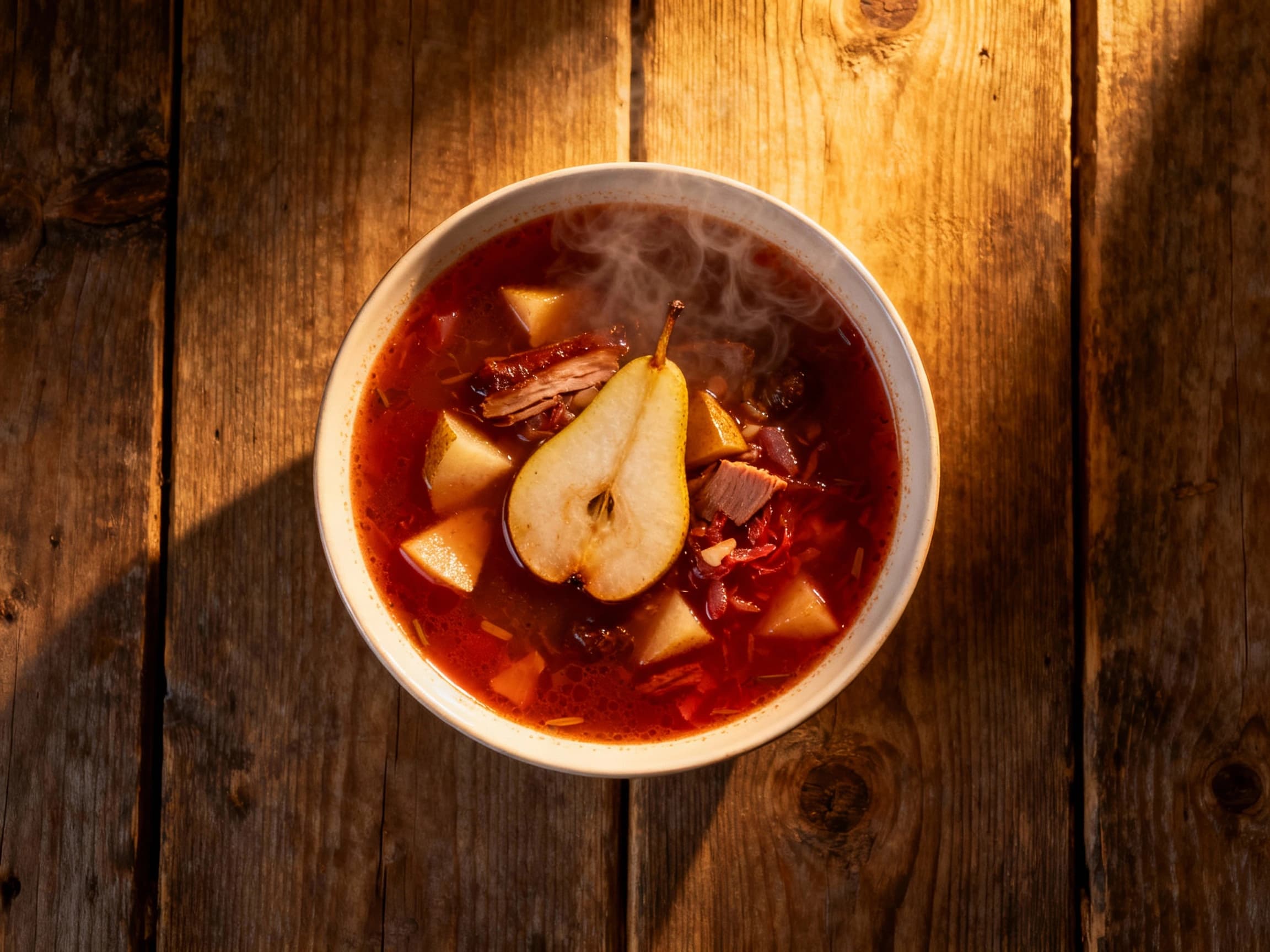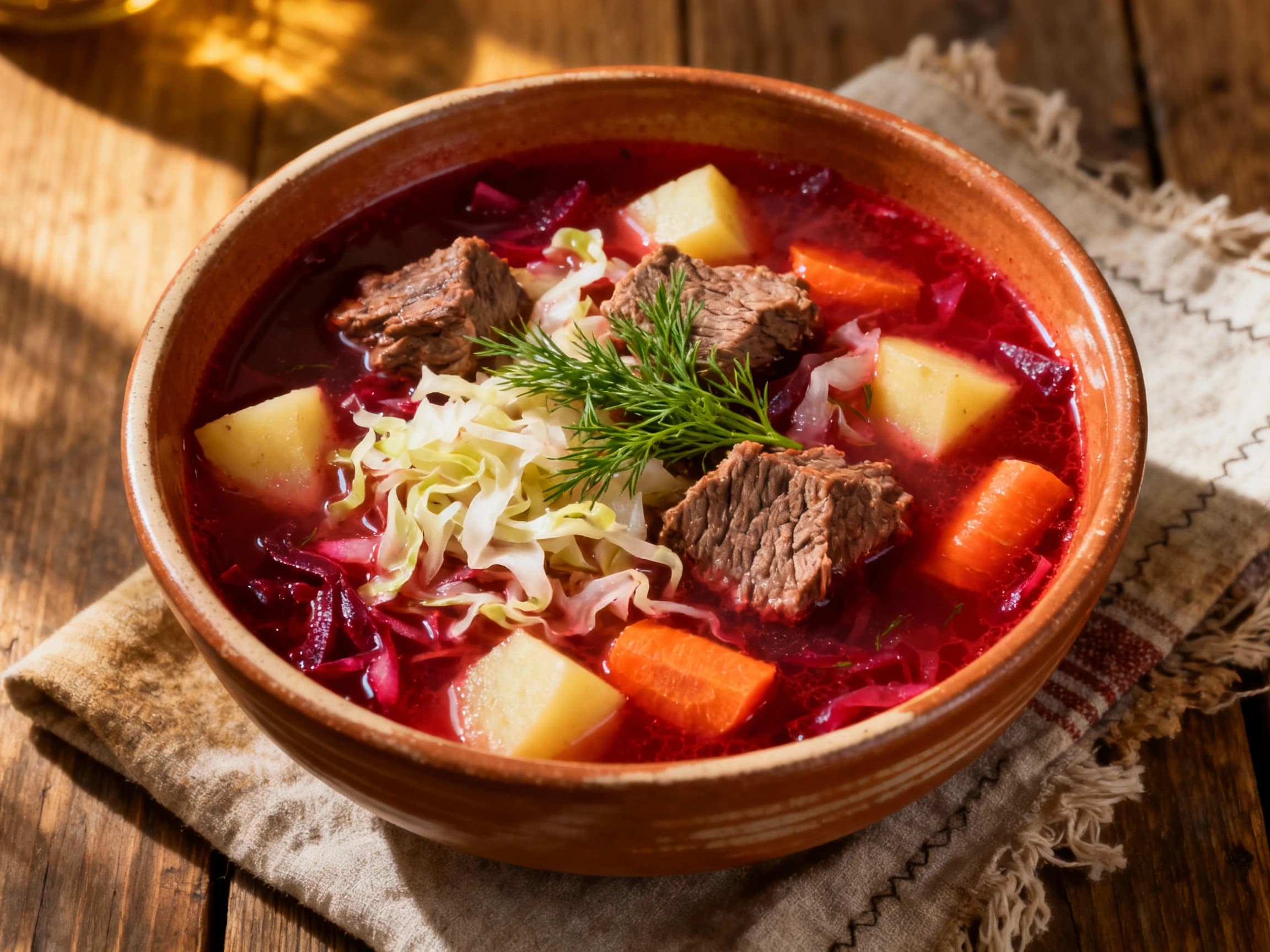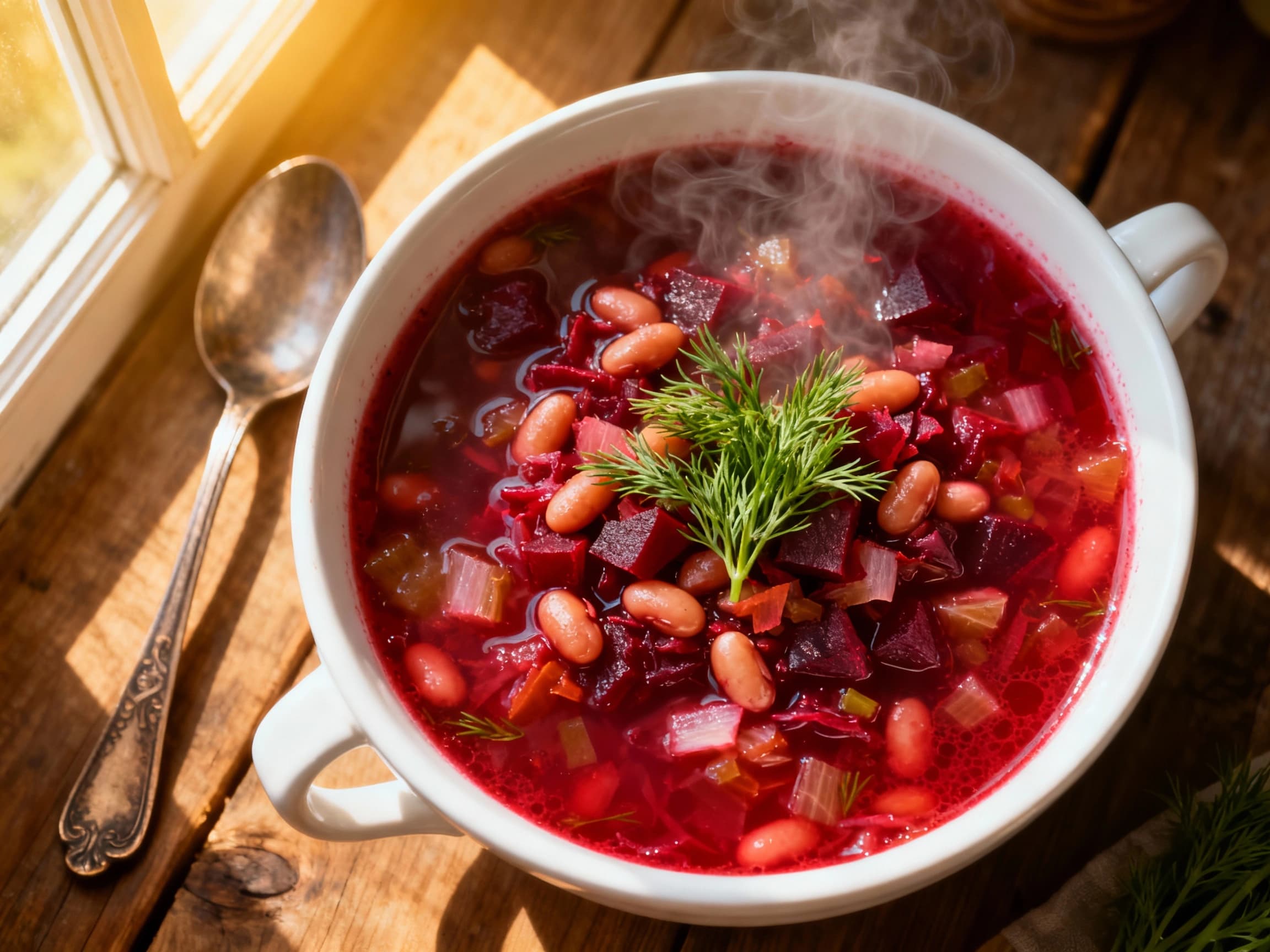
Borscht
Борщ
- Country
- Ukraine
- Region
- Not specified
- Recipes
- 3 Recipes
Origins & Characteristics of Borscht
Borscht, a quintessential sour soup, holds a revered place in Ukrainian culinary heritage, embodying centuries of tradition and regional diversity. Its origins are often traced back to ancient Slavic settlements, where it was initially made from hogweed (borshchevik), giving the soup its name. The use of beets, now its most defining characteristic, became prominent later, particularly in the 16th and 17th centuries, largely due to agricultural advancements and spread of beet cultivation across Eastern Europe. Ukrainian borscht, in particular, is celebrated for its deep red color, attributed to beets, and a rich, complex flavor profile that often includes a variety of vegetables like cabbage, potatoes, carrots, and sometimes meat. There are countless regional variations; classic Kyivski borscht might include beef and lamb, while Chernihivski borscht could feature apples and beans. Odesan borscht often incorporates fish. This adaptability highlights its role as a staple that could be prepared with readily available local ingredients. Borscht is not merely a dish; it is a cultural symbol, frequently served during holidays, family gatherings, and everyday meals. Historically, it was a practical and nourishing meal for peasants, offering sustenance and warmth. In modern Ukraine, borscht remains a source of national pride, with many families passing down their unique recipes through generations. Discussions about the 'true' borscht often ignite passionate debates, underscoring its deep cultural significance.
History of Borscht
Earliest references to a 'borscht'-like soup, likely made from hogweed, appear in historical texts.
Beets become a prominent ingredient, transforming the soup's color and flavor profile.
Borscht gains widespread popularity across Ukrainian lands, with numerous regional variations emerging.
Cookbooks begin to codify distinct Ukrainian borscht recipes.
UNESCO adds 'Culture of Ukrainian борщ cooking' to its list of Intangible Cultural Heritage in Need of Urgent Safeguarding.



